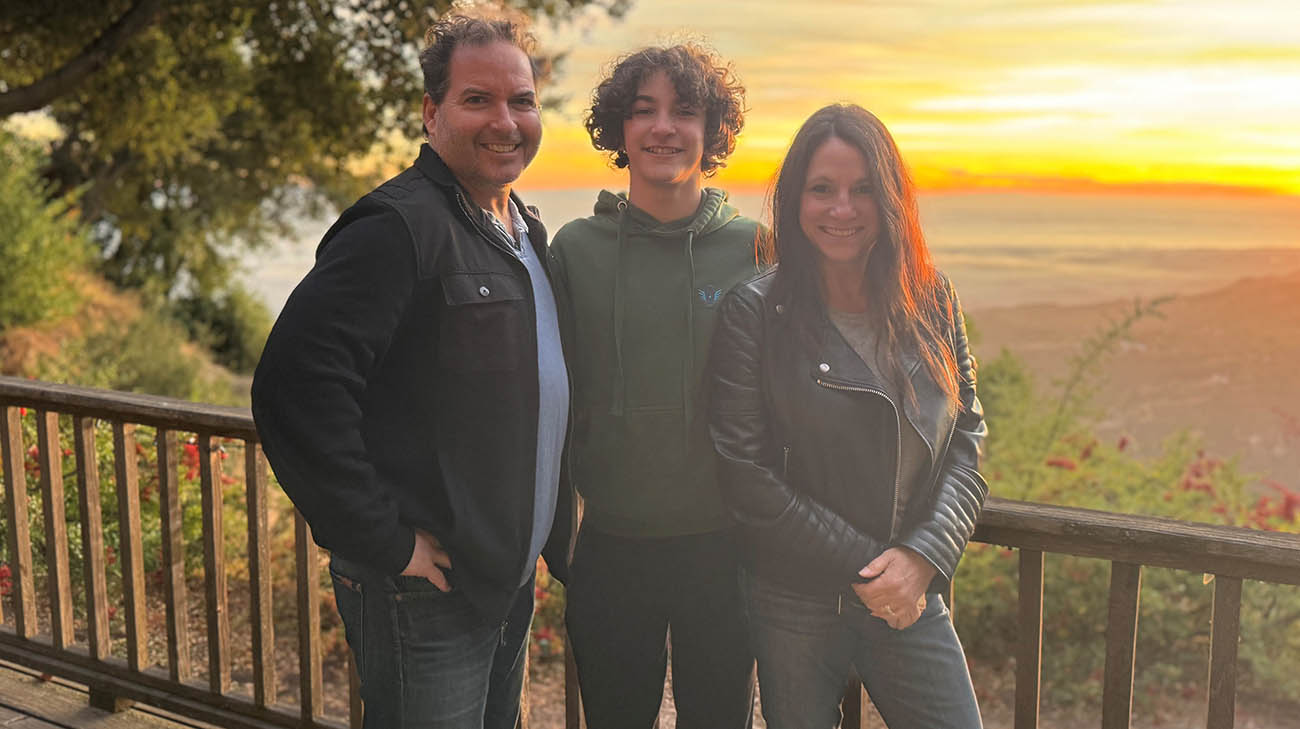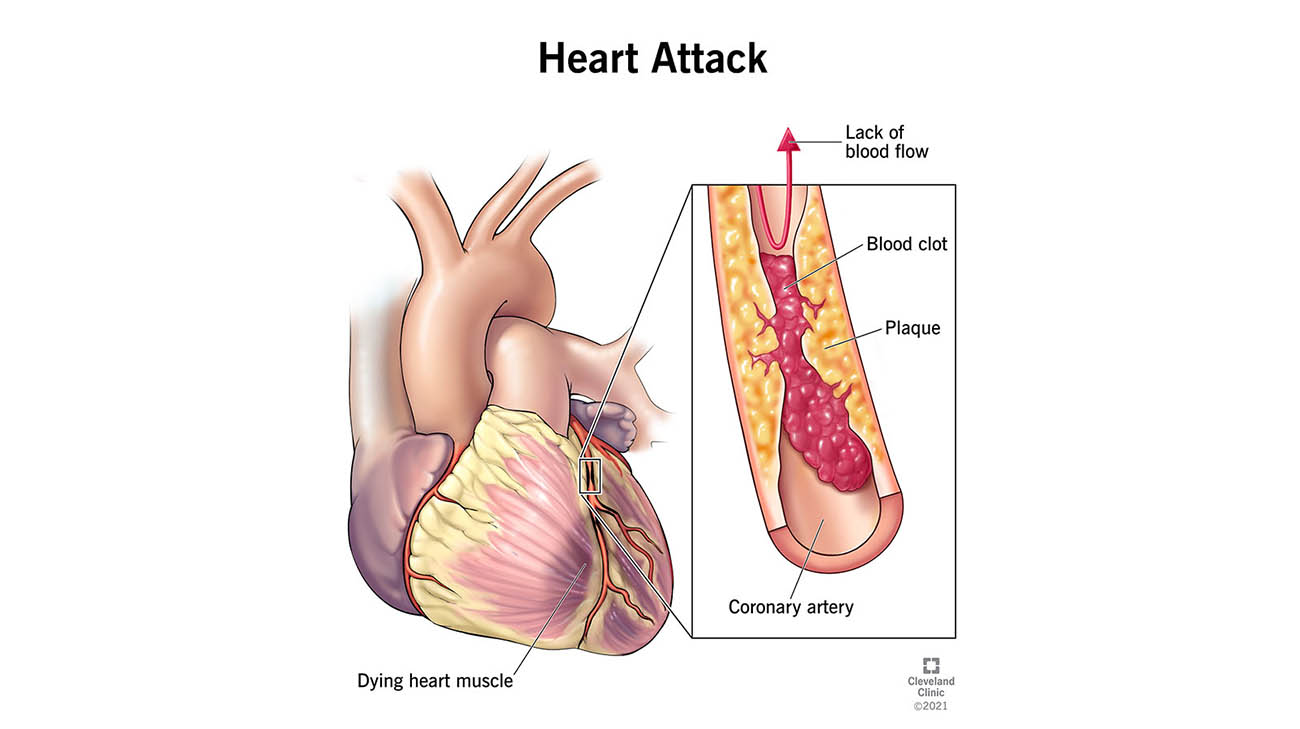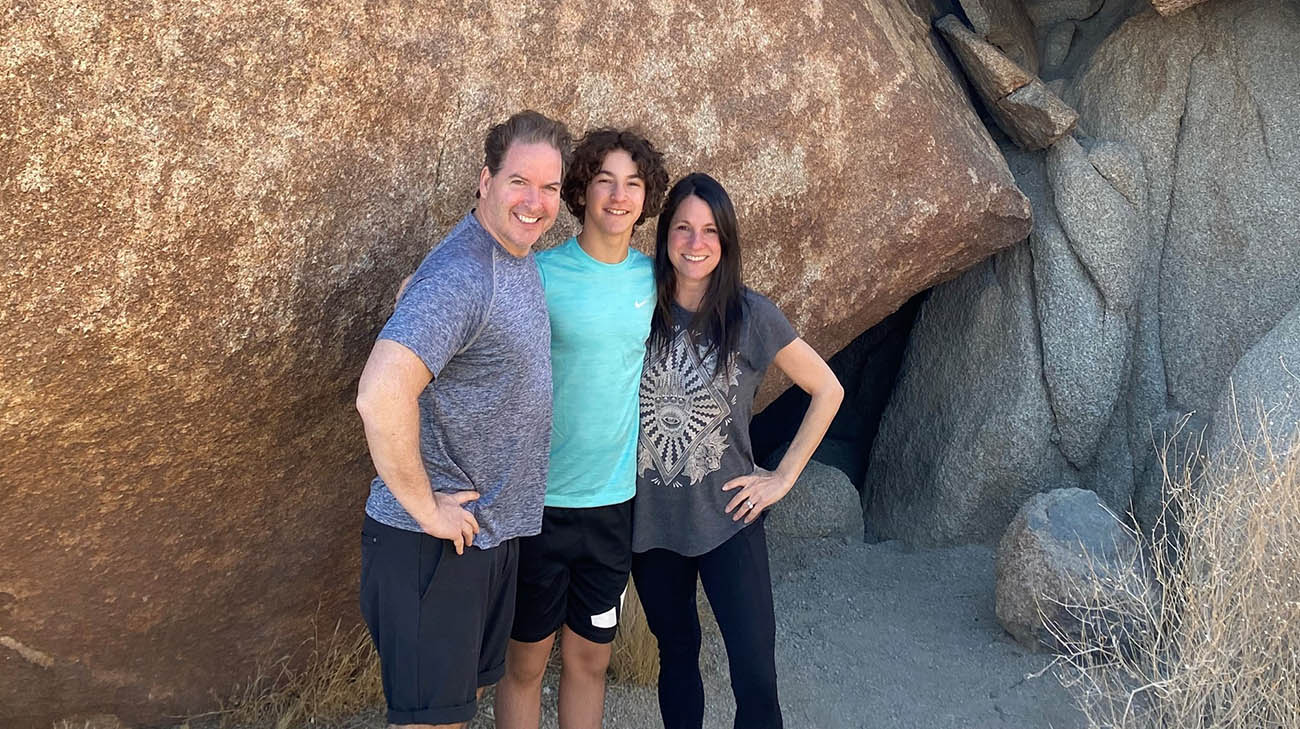
Tracy Turoff considered herself “perfectly healthy.” She consumed a healthy diet, wasn’t overweight and never smoked. She stayed active by exercising regularly and participating in sports.
That’s why when Tracy suffered a heart attack in Dec. 2023 she felt it was completely unexpected. She has learned a lot since then, including the heart attack symptoms for women. She’s also learned personal and family health history can be strong risk factors for heart issues later in life.
In July 2023, Tracy tore her rotator cuff doing flips on a trampoline. “It wasn’t an accident,” she laughs. “I was just too old to be doing that,” says the 52-year-old lawyer. After surgery and physical therapy, Tracy was cleared to do arm exercises on her own.
While doing those workouts, Tracy says she felt pressure in her chest and some pain in between her shoulder blades. Because of the recent surgery, she thought the discomfort was muscular. She decided to moderate her pace and focus on her breathing.

Tracy with Ari and their son, Jaxon, at a Charlotte Hornets basketball game two days before going to the emergency department. Her symptoms had already begun. (Courtesy: Tracy Turoff)
On a couple other occasions, Tracy experienced symptoms she didn’t recognize as anything serious. However, looking back, she says she felt something was off. “But I am the tough, sporty one,” she says. “I didn’t say I wasn’t feeling well. I didn’t complain.”
On Dec. 25, 2023, Tracy, along with her husband Ari Sherwin and their 14-year-old son, were having a family dinner at her aunt’s house in Port St. Lucie, Florida. After having strong pain -- “like being electrocuted” -- in her wrist and jaw, Tracy’s family knew something was wrong. They insisted on taking her to the closest emergency department.
Tracy was transferred to Cleveland Clinic Martin North in Stuart, Florida. “I was feeling fine by then, and my numbers were not crazy,” she recalls. But a cardiac catheterization was recommended. It showed blockage in four arteries. The medical team said her best treatment options included coronary artery bypass surgery or a stenting procedure to open the arteries and return blood flow to the heart.

A blocked coronary artery prevents blood from reaching your heart muscle and causes a heart attack. (Courtesy: Cleveland Clinic)
Tracy remembers being in disbelief, but she knew it was serious when she learned of the blockages. “I didn’t have any fear,” she says. “I didn’t know enough to be scared, but my husband was as white as a ghost.”
When asked if she could return home to Solon, Ohio, and have the procedure done at Cleveland Clinic’s main campus, her healthcare team said, “absolutely not.” Tracy recalls the cardiologist telling her, if she waited there may not be a procedure to do.
Tracy opted to undergo the stent placement at Cleveland Clinic Martin North. After the successful surgery and an overnight stay in the hospital, Tracy was discharged. She spent a few more days in Florida -- and on the advice of her medical team -- flew home to Cleveland, Ohio, with her son instead of driving.
Tracy followed up with Leslie Cho, MD, cardiologist and director of Cleveland Clinic’s Women’s Cardiovascular Center.
Dr. Cho says, “30% of women have atypical symptoms.” Tracy was among these women. Those symptoms can include shoulder, back, neck, jaw or upper stomach pain, nausea or unusual fatigue. Traditional risk factors for heart disease, such as high cholesterol and high blood pressure impact both men and women. Dr. Cho further explains, "Up to 70% of women experience chest pressure or chest tightness."
Dr. Cho says there are adverse pregnancy outcomes that increase the risk for heart attack or heart disease, like gestational diabetes, hypertension during pregnancy and preeclampsia.
Hypertension during pregnancy can increase the subsequent risk of cardiovascular disease by 60%, stroke by 80% and hypertension by 230%. In Tracy’s case, Dr. Cho says her gestational hypertension, while pregnant with her son, was a strong risk factor for cardiovascular disease and heart attack.

Tracy, Ari and Jaxon hiking in Joshua Tree National Park one year after Tracy was admitted to the emergency department. (Courtesy: Tracy Turoff)
Another strong risk factor for cardiovascular disease is autoimmune disease. Women make up about 80% of people diagnosed with autoimmune diseases, such as rheumatoid arthritis and lupus. Those diseases can increase a person’s risk for heart attack, heart failure and other cardiovascular problems.
Additionally, women with diabetes are two-to-four times more likely to develop cardiovascular disease compared to men with diabetes.
“The best advice is if you are having symptoms or feel something is not right, don’t be your own doctor,” says Dr. Cho. “Don’t try to self-diagnosis with online search results. See your doctor and get the proper medical diagnosis. It’s important to know your numbers and your health history so you can prevent disease.”
Tracy is grateful for the care she has received from Dr. Cho and team. She also credits Stephanie Johnson, cardiac exercise physiologist, with keeping her motivated and tailoring the cardiac rehab program to fit Tracy’s specific needs. Tracy has continued running several miles a week because of the strength she’s regained and as part of her long-term recovery.
As a result of her heart attack, Tracy says some of her friends and family members have seen their doctors and talked about their heart disease risk. Two of them now take statins to lower their cholesterol. Screenings and tests including blood pressure, cholesterol, blood glucose, lipoprotein (a) and calcium score can all help physicians create a plan with patients to maintain healthy levels and help prevent future heart problems.
A year after her heart attack, Tracy says she is still learning and trying to understand her body. “I feel like my story can serve as a warning. It is important for women to know the signs of a heart attack.”
Related Institutes: Heart, Vascular & Thoracic Institute (Miller Family)

